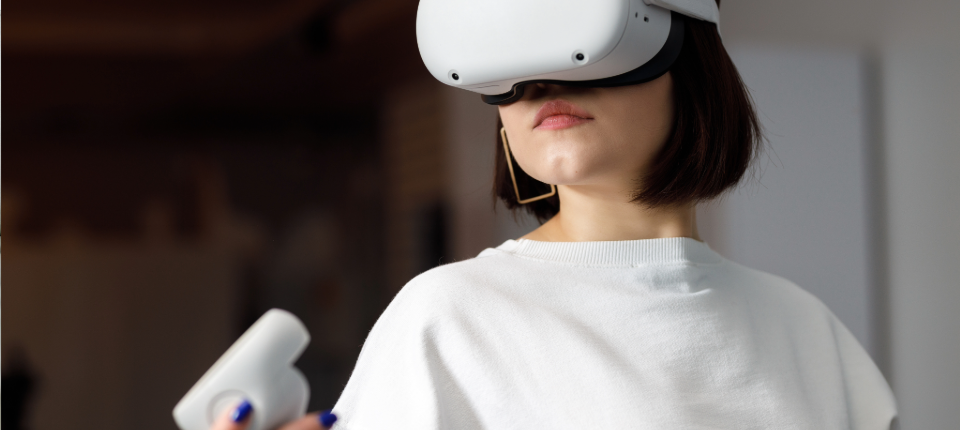The world of work is changing faster than ever, fuelled by emerging technologies and employee needs and behaviours. With the new year about to start, let’s look at some key work trends and how they’ll be shaping the way we do things in 2025.
Collaboration with AI
Over the years, we’ve moved from predictive AI to generative AI to agentic AI. Artificial intelligence is increasingly being used to automate tasks, and is now beginning to handle more complex cognitive tasks. According to a 2022 report, around 15% of UK businesses had adopted at least one AI technology, while 2% were piloting AI and 10% planned to adopt at least one AI technology in the future.
Experts are predicting a trend towards an “agentic workplace”, where human employees view AI agents as collaborators rather than tools. The ability to collaborate effectively with AI agents will continue to shape the way we work in 2025 and beyond.

Micro-Retirement
Similar to a sabbatical or a gap year, a growing number of young professionals are opting for “micro-retirement”, taking breaks ranging from six to 18 months to travel and recharge. It’s a new way to improve work-life balance and prevent burnout. It’s especially popular among young Millennials who graduated in the recession when travel was beyond their budget, and Gen Z workers who graduated during COVID when travel was prohibited.
Naturally, micro-retirement breaks require careful financial planning and saving, but those who manage to make it work say that it’s an enriching and rejuvenating experience.

The Great Detachment
The “Great Detachment” is a growing phenomenon where employees (particularly younger workers) have started to mentally and emotionally disengage from their jobs, driven by burnout, lack of career growth, or lack of meaningful work. This leads them to “quiet quit” their jobs, mentally checking out and doing the bare minimum to get by, while keeping an eye out for new job opportunities.
According to Gallup, self-reported employee turnover risk is the highest it’s been since 2015. What’s more, 42% of US employees who quit their job in the past year say that their manager or organisation could have done something to prevent them from leaving. However, 45% say their managers failed to discuss their job satisfaction, performance or future with the company in the three months before quitting.
This shows a potential disconnect between managers and the employees they’re meant to support, which leads us to our next emerging work trend.
Middle Management Burnout
Middle managers are headed for a collective crash, impacting their performance and wellbeing across the board. Middle management is a difficult position, with demands and expectations coming from both above and below. An Australian study found that 73% of middle managers are feeling overwhelmed, stressed or burned out. Heading into 2025, it’s critical that companies start offering more support to middle management, not only for their sake but for that of employees who will be affected by “trickle-down” stress and a lack of managerial support.
Shorter Workweeks
We recently discussed how some high-income countries are showing a trend towards shorter workweeks, motivated by a strong focus on work-life balance and employee wellness. Following a pilot programme in 2023, 92% of companies who trialled a four-day week decided to continue after seeing an upswing in productivity and employee wellbeing, as well as a reduction in burnout, sick days and turnover. The popularity of this model is set to grow in the year to come.
Experts like JPMorgan CEO Jamie Dimon predict that an even shorter workweek of 3.5 days could be in our future, thanks to emerging AI automation.
The Immersive Workspace
Cutting-edge technologies like virtual reality (VR), augmented reality (AR) and mixed reality (MR) are helping to create immersive virtual workspaces and connect people in a world where remote work has become far more common. These tools go beyond traditional video conferencing and give teams the virtual experience of sitting together in the same room, even if they’re physically separate.
While immersive tools have great potential to improve collaboration and engagement, there are also concerns about accessibility, user adaption and their potential effect on work-life balance.

The Sustainable Workspace
Environmental responsibility is a top priority for younger workers. 46% of Gen Zs and 42% of Millennials say they have changed or plan to change job or industry due to climate concerns, and both age groups say they and their colleagues are putting pressure on their employers to take action against climate change. Companies that ignore this trend in 2025 risk getting left behind.
Looking for a fully flexible workspace solution to take you through the coming year? Instant Offices has a selection of managed and serviced offices to help you adapt to the changing world of work.
Looking for Office Space?
We Operate in Some of the World’s Top Cities:
London, New York, San Francisco, Paris, Singapore, Hong Kong, Search more locations
